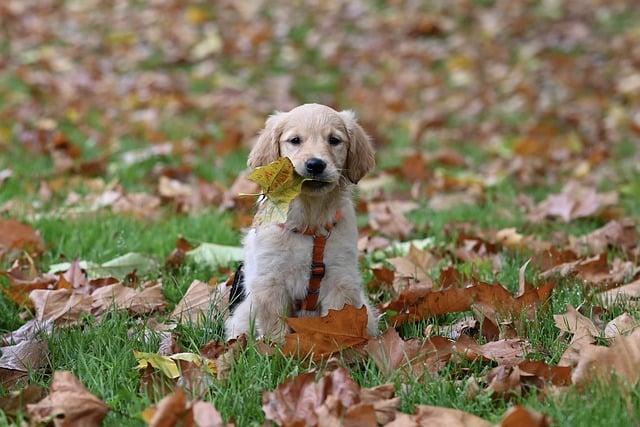In a sunlit room,Mia sat cross-legged on the floor,her tabby cat,Whiskers,curled beside her. Suddenly, Whiskers stretched, then leaned over and began to lick Mia’s hand. Surprised, she paused her reading. Was it affection, or was he simply grooming her like one of his own?
As the gentle rasp of his tongue continued, Mia realized it was both. In cat language, this was a sign of trust and love, a way of saying, “You’re part of my family.” With a smile, she returned to her book, feeling a warm bond that only a cat could create.
table of Contents
- Understanding Feline Affection: The Meaning Behind Cat Licks
- The science of Cat Behavior: Why Your Cat Chooses to lick You
- Health Considerations: When Cat Licking is a Cause for Concern
- Nurturing the Bond: How to Respond to your Cats Licking Behavior
- Q&A
Understanding Feline Affection: The Meaning Behind Cat Licks
When a cat licks you, it’s often a sign of affection, but the meaning behind this behavior can be multifaceted.Cats have a unique way of expressing their feelings, and licking is one of their primary methods of communication. This behavior can be traced back to their kittenhood, where they would be groomed by their mothers. As they grow,this instinctual behavior transforms into a way to bond with their human companions.
In the feline world, grooming is a social activity. When your cat licks you, it may be attempting to include you in its social circle. This act can signify trust and comfort, indicating that your cat feels safe in your presence. It’s a way for them to show that they consider you part of their family. The act of licking can also be a form of marking territory, as cats have scent glands in their tongues. By licking you, they might potentially be claiming you as their own.
Moreover, licking can serve as a self-soothing mechanism for cats. Just as humans might engage in comforting behaviors when stressed, cats may lick to calm themselves. If your cat is licking you more than usual, it could be a response to anxiety or discomfort. In such cases, it’s essential to observe other behaviors and ensure that your feline friend is not experiencing any distress or health issues.
Lastly, the context of the licking can provide additional insights into its meaning. For instance, if your cat licks you after a play session, it may be a way to express happiness and contentment. Conversely, if the licking is accompanied by kneading or purring, it’s a clear indication of affection. Understanding these nuances can deepen your bond with your cat and enhance your recognition for their unique ways of showing love.
The Science of Cat behavior: Why Your Cat Chooses to Lick You
When your feline friend decides to lick you, it’s more than just a quirky behavior; it’s a complex interaction rooted in their instincts and social behaviors. Cats are known for their grooming rituals, and when they extend this behavior to their human companions, it often signifies a deep bond. This act of licking can be seen as a form of affection, akin to how they would groom their fellow cats. By licking you, your cat is expressing trust and comfort, indicating that they see you as part of their social group.
Moreover, licking can also serve as a way for cats to mark their territory. Cats have scent glands in their tongues,and when they lick you,they are essentially leaving their scent behind. This behavior is a way for them to claim you as their own, reinforcing their bond with you. It’s a subtle yet powerful reminder that you are part of their world, and they want to ensure that you carry their scent, just as they would with other cats in their territory.
Along with affection and marking territory, licking can also be a sign of stress relief for cats. Just like humans might engage in comforting behaviors when feeling anxious, cats may lick as a way to soothe themselves. If your cat is licking you more than usual, it might very well be a response to changes in their habitat or routine. Understanding this aspect of their behavior can help you provide a more comforting atmosphere for your pet, ensuring they feel secure and relaxed.
Lastly, it’s critically importent to consider that some cats may lick due to boredom or a need for stimulation. if your cat is left alone for extended periods or lacks engaging activities, they might resort to licking as a way to entertain themselves. Providing interactive toys, engaging playtime, and mental stimulation can help redirect this behavior into more productive outlets. By understanding the reasons behind your cat’s licking, you can foster a healthier and more fulfilling relationship with your furry companion.
Health Considerations: When Cat Licking is a Cause for Concern
While a cat’s licking behavior is often a sign of affection or grooming, there are instances when it may indicate underlying health issues.If your feline friend suddenly increases their licking frequency or targets specific areas of their body, it could be a signal that something is amiss. Pay attention to any changes in their behavior, as these can provide valuable insights into their health status.
One common concern is the possibility of allergies.Cats may lick excessively due to skin irritations caused by environmental factors, such as pollen, dust mites, or certain foods. If you notice your cat licking at their paws or belly, it might be worth investigating potential allergens in their environment or diet. Additionally, **flea infestations** can lead to intense itching, prompting your cat to lick in an attempt to relieve discomfort.
Another issue to consider is the presence of **pain or discomfort**. Cats are masters at hiding their pain, but excessive licking can be a subtle indicator of an underlying condition. If your cat is fixated on a particular area,it could be due to an injury,arthritis,or even dental problems. Observing your cat’s behavior and noting any signs of distress can help you determine if a trip to the veterinarian is necessary.
Lastly,behavioral issues can also play a role in excessive licking. Stress, anxiety, or boredom may lead a cat to engage in compulsive grooming behaviors. If your cat is licking to the point of creating bald patches or skin lesions, it may be time to assess their environment and routine. Providing enrichment through play, interactive toys, and safe spaces can help alleviate stress and reduce the urge to lick excessively.
Nurturing the Bond: How to respond to Your Cats Licking Behavior
when your feline friend starts to lick you, it’s more than just a quirky behavior; it’s a profound expression of affection and trust. Cats frequently enough groom each other as a way to strengthen social bonds, and when they extend this behavior to their human companions, it signifies a deep connection. This act of licking can be seen as a way for your cat to include you in their social circle, treating you as part of their family.
Understanding the nuances of this behavior can enhance your relationship with your cat. If your cat licks you gently, it may be a sign of comfort and contentment. In contrast, if the licking becomes more vigorous or obsessive, it could indicate stress or anxiety. Observing the context in which the licking occurs can provide valuable insights into your cat’s emotional state. For instance,if they lick you after a stressful event,it may be their way of seeking reassurance.
To nurture this bond, consider responding positively to your cat’s licking behavior. You can do this by gently petting them or speaking softly to them, reinforcing their affectionate gesture.Additionally, providing a calm environment can help your cat feel secure, encouraging them to express their love through licking. Remember, every cat is unique, so pay attention to their individual preferences and reactions.
It’s also essential to maintain a balance. While licking can be a sign of affection, excessive licking may require attention.If you notice your cat licking you or themselves excessively, it might be worth consulting a veterinarian to rule out any underlying health issues. By being attentive to your cat’s needs and behaviors, you can foster a deeper, more meaningful connection that enriches both your lives.
Q&A
-
Why does my cat lick me?
Cats lick as a form of affection and bonding. When your feline friend licks you, it’s their way of showing love and trust, similar to how they groom each other in the wild.
-
is my cat trying to groom me?
Yes! Cats often lick their owners as a grooming behavior. This instinctual action signifies that they consider you part of their family and want to take care of you.
-
Could my cat be stressed or anxious?
Sometimes, excessive licking can indicate stress or anxiety. If your cat licks you more than usual, it might be their way of seeking comfort or reassurance during stressful times.
-
should I be concerned about my cat licking me?
Generally, licking is a normal behavior. However, if it becomes obsessive or is accompanied by other unusual behaviors, it may be worth consulting a veterinarian to rule out any underlying issues.
a cat’s lick is more than just a quirky behavior; it’s a complex language of affection, trust, and instinct.So, the next time your feline friend gives you a gentle grooming, cherish the moment—it’s their way of saying, “You belong to me.”

大家好,我是彼得潘,專業的手法身體治療師。我喜歡探索和研究各種主題,並透過與人工智慧的合作分享專業、實用、有趣的文章。我們定期進行人工審核,以確保內容的準確性。如果您發現文章中有任何不準確的地方,請隨時與我們聯繫,我們會及時糾正。您可以透過 [email protected] 與我們聯繫。



